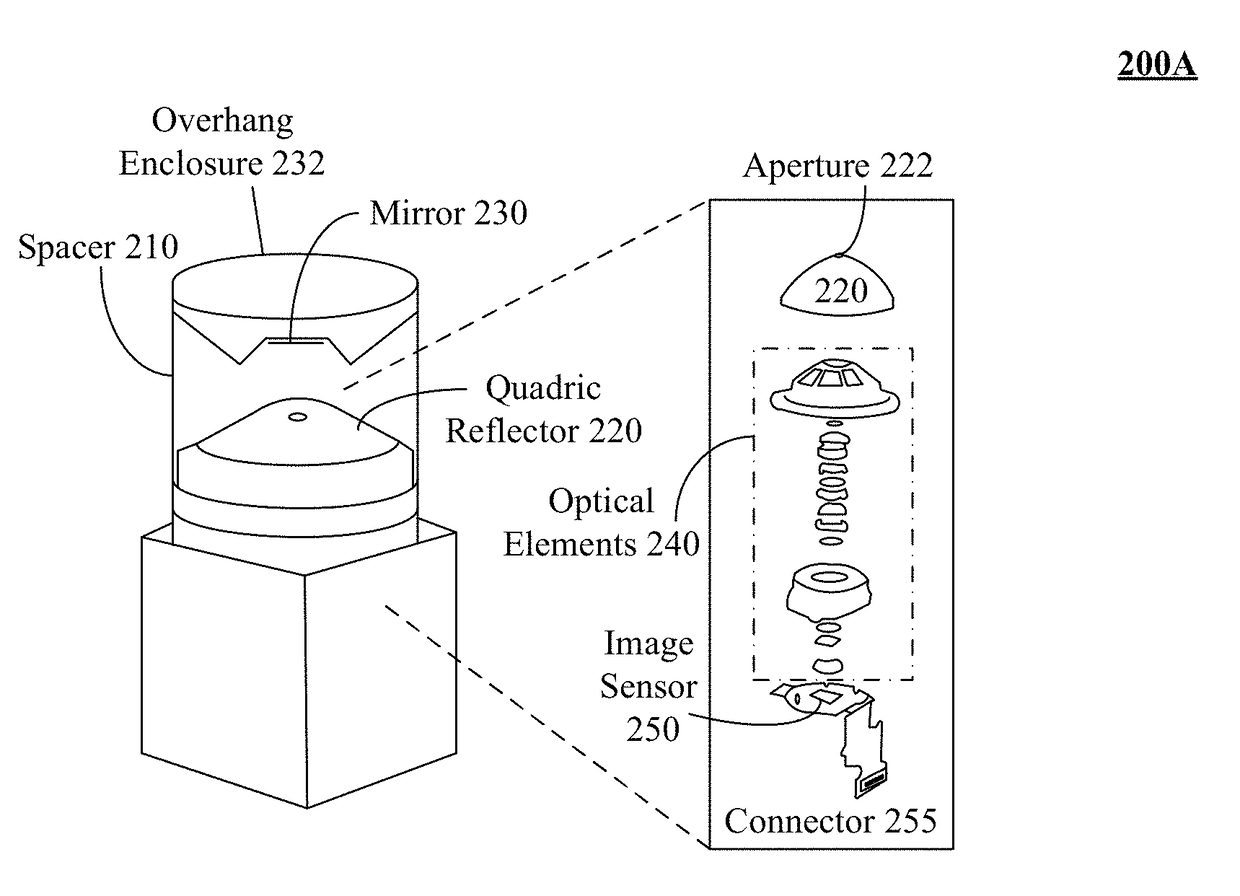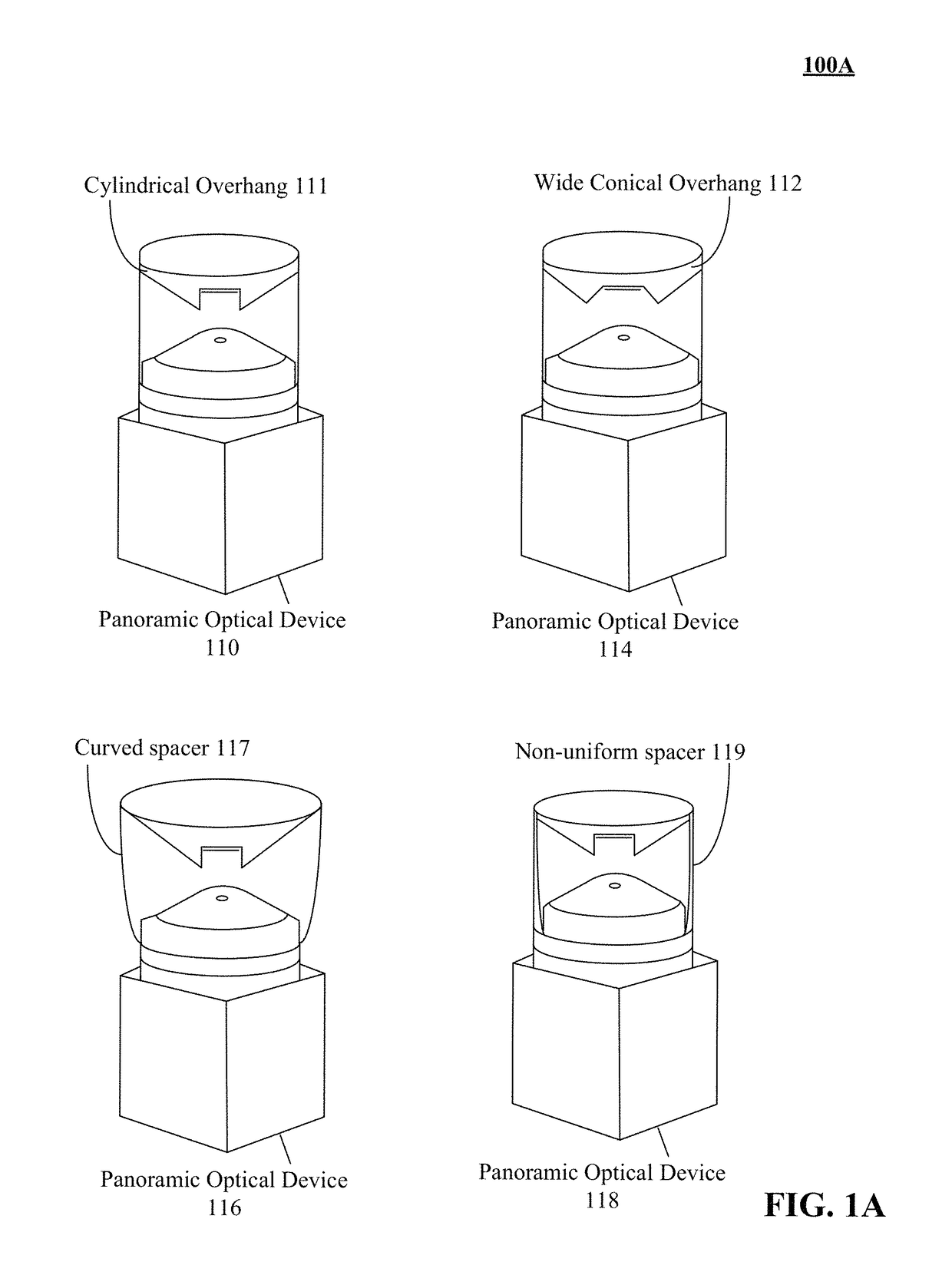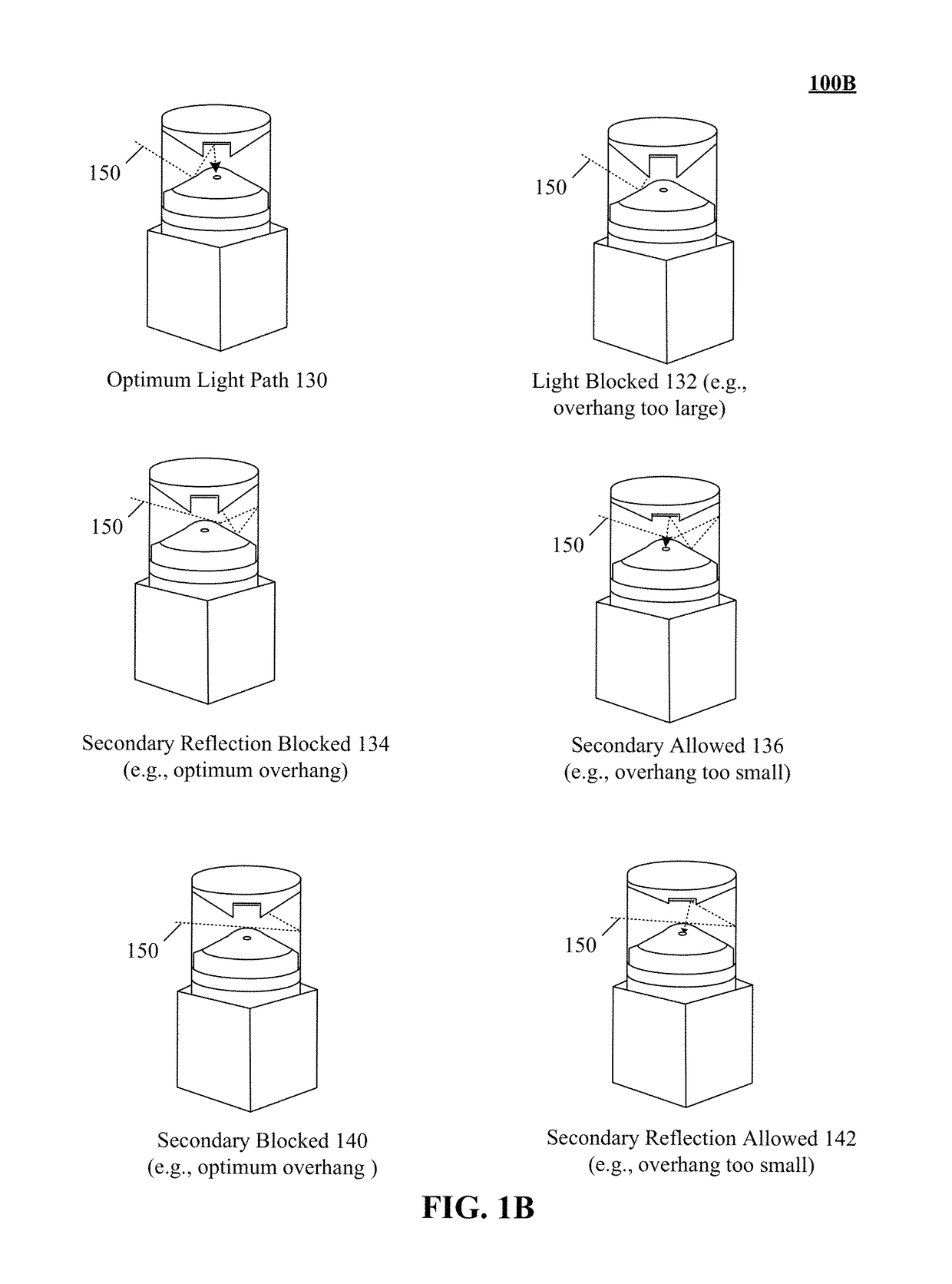Overhang enclosure of a panoramic optical device to eliminate double reflection
a technology of optical device and overhang enclosure, which is applied in the field of improving the overhang enclosure of the panoramic optical device to eliminate double reflection, can solve the problems of difficult to provide high-quality optics in the panoramic camera, limited software correction distortion correction, and inability to easily correct the distortion caused by too much light reaching the image sensor
- Summary
- Abstract
- Description
- Claims
- Application Information
AI Technical Summary
Benefits of technology
Problems solved by technology
Method used
Image
Examples
embodiment 510
[0065]In embodiment 510, an overhang enclosure 512 can be friction fitted to a base of a panoramic optical device. In the embodiment, a bottom portion of a transparent spacer can be securely fitted against a protruding wall of base 514. For example, enclosure 512 can be mated against a lip (e.g., area 516) of base 514. It should be appreciated that enclosure 512 can be fitted to base 514 using one or more traditional and / or proprietary attachment mechanisms. Attachment mechanisms can include, but is not limited to, snapping / locking mechanism, a screw based attachment mechanism, and the like.
embodiment 540
[0066]In embodiment 540, the overhang enclosure 512 can include a conical cross section (e.g., concavity 570) corresponding to dimensions 522, 550 and an overhang 544 with dimension 557 at an angle 556. In one instance, mirror 542 can be recessed within the concavity 570 based on optimum depth 560. In one configuration of the instance, depth 560 can include a cylindrical portion which can recess the mirror 542 for optimum light reflection into aperture of reflector 520. The concavity 570 can be defined by internal angle 554 which can be utilized to control environmental light absorption. That is, angle 554 can be adjusted to ensure optimum light absorption without affecting light reflected from mirror 542 or reflector 520.
[0067]In one instance, overhang 544 can be defined by angle 556 and length 557 which can approximately conform to an inverted conical pyramid. In one embodiment, overhang enclosure 512 can be positioned at a distance 558 from quadric reflector 520 to enable appropr...
embodiment 580
[0070]FIG. 5B shows a ray diagram for a panoramic optical device in accordance with embodiments of the disclosure. Embodiment 580 illustrates environmental light modeling reflection to establish an optimum overhang enclosure.
[0071]In embodiment 580, modeling environmental light to be reflected into the aperture of the optical device while simultaneously eliminating secondary reflections can enable for an optimum overhang enclosure configuration to be determined. For example, light refracted from transparent spacer which travels tangentially across the surface of quadric reflector can be absorbed by an inner wall of an overhang enclosure. It should be appreciated that environmental light which is refracted by transparent spacer onto the mirror in the overhang enclosure can be reflected onto an inner wall of the overhang enclosure. That is, image banding can be eliminated without requiring complex software correction once an optimum enclosure configuration is determined from the light...
PUM
 Login to View More
Login to View More Abstract
Description
Claims
Application Information
 Login to View More
Login to View More - R&D
- Intellectual Property
- Life Sciences
- Materials
- Tech Scout
- Unparalleled Data Quality
- Higher Quality Content
- 60% Fewer Hallucinations
Browse by: Latest US Patents, China's latest patents, Technical Efficacy Thesaurus, Application Domain, Technology Topic, Popular Technical Reports.
© 2025 PatSnap. All rights reserved.Legal|Privacy policy|Modern Slavery Act Transparency Statement|Sitemap|About US| Contact US: help@patsnap.com



